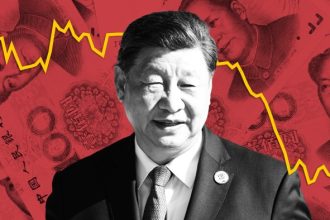Tandem Repeat, formed in 2017, by co-founders, Dr. Gozde Senel Ayaz, Dr. Benjamin Allen, and Dr. Melik Demirel are challenging current practices of the fabric industry by offering unparalleled strength, durability and sustainability. Squitex technology is poised to transform the fashion industry with a sustainable, non-polluting replacement for petroleum and animal-based fibers.
The ideas for the company germinated due to the significant issue of microfiber pollution in oceans is a significant challenge for humanity. This problem is enormous. Scientists estimate that over many millions of tons of plastic enter our oceans each year. The majority of clothing on the planet is made from plastic-based materials like polyester, rayon, nylon, and acrylic. When washed, synthetic clothing sheds tiny plastic fragments known as microfibers. Microfibers are the most prevalent type of microplastic found in the environment. An Ocean Wise Study (2019) estimated that the average household in the U.S. 2 and Canada releases 533 million microfibers – or 135 grams – of microfibers to wastewater treatment plants each year. This study also estimated that the U.S. and Canada together release over 878 tons of microfibers into the environment through treated wastewater.
In search of an alternative to plastics that end up in our oceans, the founders of Tandem Repeat turned to squid proteins and began working on developing them. Appreciating their manufacturing process, can be viewed in detail here and you can see how incredible this new innovation is.
The company recently announced its first fashion garment, the Squitex. The Squitex is a bioengineered animal fiber made from the fermentation and available in a maroon color that resembles Mark Rothko’s famous “Red on Maroon” painting. Squitex is an AI-designed protein-based fiber made from biomanufacturing. The company has received numerous awards and funding from BioMADE, supported by Biden’s administration’s Biomanufacturing initiative, and also won the Microfiber Innovation Challenge for developing a sustainable fiber. “Plastics break down into microfibers found in everything, but Squitex can minimize microfiber pollution by using Nature’s genetic codes,” said Dr. Melik Demirel, co-founder and Huck Endowed Chair Professor in Biomimetic Materials at Penn State. He added, “Our team combines biomanufacturing and artificial intelligence to fine-tune the physical properties of Squitex for various tasks, which includes predicting protein sequences and structures, as well as designing garments.”
Last year, they also won the microplastic challenge award, a $150K prize which allowed them to further advance their product innovation.
In my recent interview with Dr. Melik Demirel, I asked him a number of questions about the vision of the company, how the idea germinated, and lessons as an entrepreneur that he has learned along the way.
First it is important to understand that Tandem Repeat Technologies is a climate tech startup harnessing sustainable and ethical manufacturing to create all-natural, high-performance Squitex fibers. Squitex fibers have been specifically designed using AI to enhance their performance by predicting the properties of proteins that provide high performance. Hence, Squitex can experience superior comfort and performance with the most ecological choice available in fabrics. Additionally, the team is working towards producing Squitex plant-based molecular farming techniques, which should reduce costs and increase the overall volume of output. The company has a portfolio of issued patents and pending patents covering designer Squid Ring Teeth (SRT) genes, associated products, and methods.
The challenges that the company currently is facing is increasing its market share and improving the positioning of Squitex fiber. Additionally, scaling up production from kilograms to tons will be critical to support its customer reach in selling to major fashion brands which have already signed letters of intent to use the product and they are big brand names as confidentiality is top of mind at their emergence stage.
Some of the top lessons that Dr. Melik Demirel wanted to pass along to other founders were:
“Venture capitalists invest around $300 billion per year globally, only a few markets exceed $1 trillion per year. These markets include fashion ($3T), consumer electronics ($1.5T), healthcare ($9T), automotive ($2T), energy and space exploration ($0.5T), and real estate ($10T). Deep tech investors are rare, so it’s important to identify innovation areas and showcase the impact of your technology through events. One should also consider partnerships with companies interested in your prototype and constantly searching for talented individuals in your domain. Additionally, securing strong intellectual property and a good license agreement can help increase your startup’s valuation. Lastly, don’t be afraid to explain the fundamentals of your science to venture capitalists who may not be familiar with your field.”
With companies like Tandem Repeat Technologies and their brilliant scientists that are applying AI to solve a significant global problem where plastics are causing tremendous harm to our oceans, and collective marine life, there remains great promise for creating a more sustainable environment for our future generations.
Read the full article here





